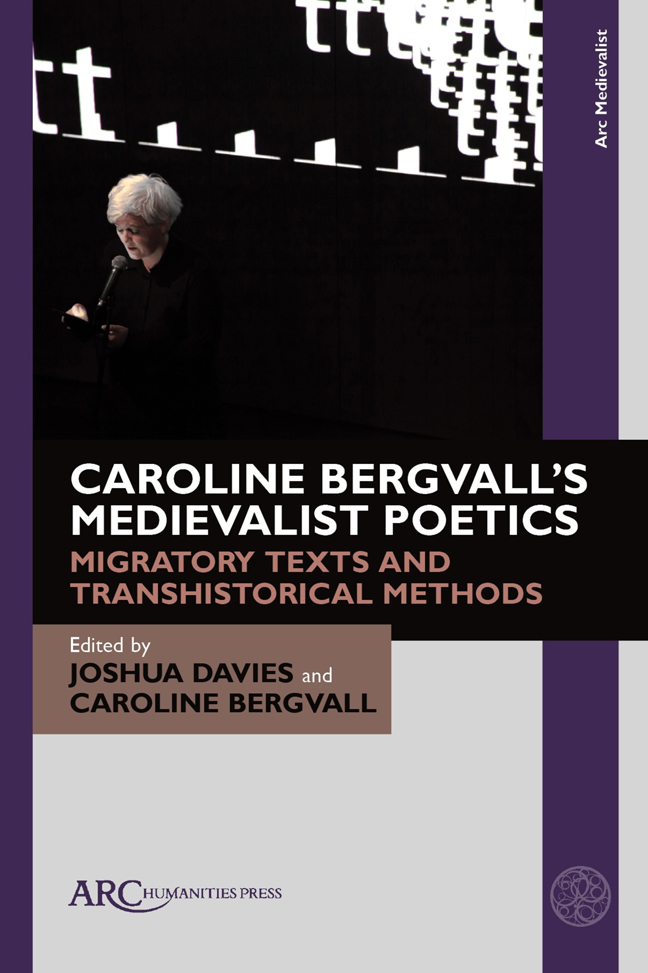Chapter 5 - Midden, Trash, and Garbage: The Discourse of Debris in Bergvall’s “The Franker Tale (Deus Hic, 2)”
Summary
in your end is my beginning, I repeat; also, my end; my end is, in fact, your end, in a way
A. R. Ammons, GarbageCAROLINE BERGVALL’S MEDDLE ENGLISH asks, “What do we do with the detritus of the past?” Remembering the trash heaps that surround and engulf Samuel Beckett’s Winnie in Happy Days or the decaying monuments to the communist regimes of Eastern Europe, some might answer that we should beware old garbage that engulfs and stultifies us. Others, imagining the fragile glories of crumbling manu scripts and the residue-laden frescos of the Sistine Chapel, argue that ancient debris must be main-tained in (or restored to) its original integrity. Some, remembering the stone spolia taken from fallen churches and used by European peasants to build their barns, might insist that we should find ways to recycle and incorporate as much as possible back into our public lives, as was accomplished when those stones were relocated to build The Cloisters in New York City. The archeo logically minded, seeing the past as a midden, a muck-heap where the broken and disposable have been tossed willy-nilly, excavate the pile, sorting and categorizing what they find. For her part, Caroline Bergvall’s verse joins those who seek complex answers that refuse to draw dark lines between the contempo-rary and the past, between what’s valued and what’s trash. Similar to George Ammon’s Garbage, in which “values thought lost (but only scrambled into / disengagement) lie around demolished,” Bergvall’s verse uncovers and recovers what’s been deemed as used-up garbage. Her Meddle English poems, built with the spoila of the past, create a way to defamiliarize the present and to reframe our understanding of the pressure the past places on the present. Adjacent to this positive use of the past, Meddle English illus-trates how much of the past’s debris continues to lie in waiting just below the surface, slyly stinking and soiling our culture, ready to be resurrected and its power reasserted. Consequently, Meddle English asserts, this trash should never be forgotten. Otherwise, it will be reclaimed, refurbished, and even prized by those who would use it against the powerless.
To see how Bergvall’s Meddle English explores our complex engagement with seem-ingly abandoned remnants of the past, this essay focuses on “The Franker Tale (Deus Hic, 2),” the third of five “Shorter Chaucer Tales.”
Information
- Type
- Chapter
- Information
- Caroline Bergvall's Medievalist PoeticsMigratory Texts and Transhistorical Methods, pp. 45 - 56Publisher: Amsterdam University PressPrint publication year: 2023
